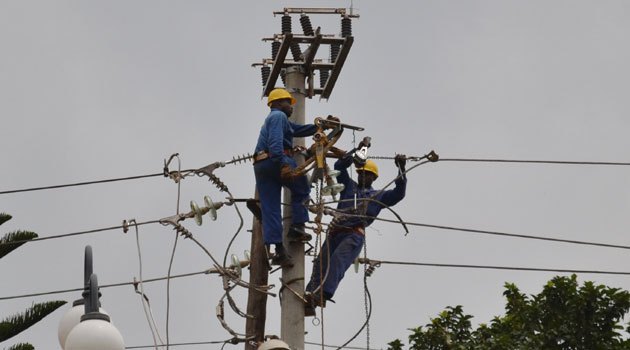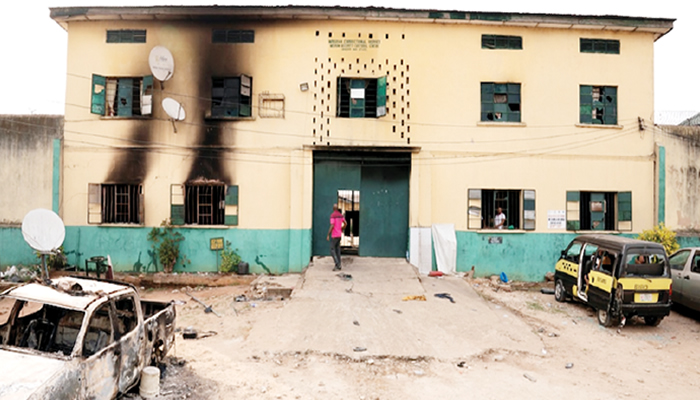Nigerians, already grappling with rising inflation and a stagnant economy, were dealt a fresh blow on April 1, 2024. The Nigerian Electricity Regulatory Commission (NERC) announced a staggering over 300 per cent increase in electricity tariffs for Band A customers, those “receiving” an average of 20 hours of power supply daily. This translates to a jump from ₦68 per kilowatt-hour (kWh) to a jolting ₦225. In July 2020, NERC adopted the idea of price discrimination, dividing customers into five different bands (A, B, C, D, E) based on the level of consumption, hours of available energy supplied, geographical area and overall living conditions. While NERC claims the hike applies only to 15% of consumers, representing the most urban and presumably affluent segment, the implications ripple far wider. With planned hikes for other tariff bands, it is essential to dissect the rationale behind the hike, its potential economic consequences for development, and the simmering discontent it exposes.
The Nigerian government has long subsidised the power sector, a burden exceeding ₦1.14 trillion budgeted for 2024, pointing to its unsustainability. NERC argues that an increase is necessary to improve service delivery and attract investment and revenue to the ailing power grid. Proponents claim higher tariffs incentivise Distribution Companies (DisCos) to reduce inefficiencies and improve service.
However, scepticism teems. Nigerians have endured decades of unreliable power supply despite previous tariff hikes. DisCos are often seen as unable to deliver on the minimum availability due to technical limitations. This has been a long-running issue for over a decade. Privatising the power sector in the mid-2000s aimed to improve efficiency, but concerns about DisCos arose soon after. Critics point to inflated billing practices, estimated bills without proper metering, and a failure to invest in infrastructure upgrades. These issues contribute to power outages and hinder overall service quality. The Nigerian public and government have grown increasingly frustrated with this situation. Unfortunately, these issues have not translated into a swift resolution, leaving a cloud over the country’s electricity distribution chain.
Businesses, the backbone of the economy, face a double-edged sword. Increased production costs due to higher electricity bills could translate to consumer price hikes, further fuelling inflation. On the other hand, reliable power could incentivise investment and boost productivity. But for many businesses, especially small and medium enterprises (SMEs), the initial financial strain could be crippling.
For ordinary Nigerians, the tariff hike is a bitter pill to swallow. With inflation hovering around 30 per cent, household budgets are already stretched thin. The increased cost of electricity may force many to cut back on other essentials like food and healthcare. This could exacerbate social inequalities and dampen economic activity. Nigeria’s recent electricity tariff hike is another blow to the nation’s shrinking middle class. With disposable incomes already strained, these households will face a significant increase in vital expenses. This could force them to limit discretionary spending or even forgo running essential appliances, further hindering their quality of life and potentially pushing some back towards poverty.
The timing of the hike could not be worse. Public trust in government policy is low, and frustration over economic hardship is simmering. The hike will likely stoke social discontent, potentially leading to protests and unrest. The recent hike could also lead to an increase in energy theft through meter bypass. The rising electricity costs put a more significant financial burden on Nigerians, especially those in the strained middle class. This economic pressure might incentivise some to bypass meters to avoid paying the higher rates. Meter tampering and bypassing are, unfortunately, not new problems in Nigeria. Previous economic hardships have been linked to increases in these practices. With a new financial strain, those who have yet to bypass their meters may be more tempted now. DisCos has faced criticism for a lack of adequate measures against electricity theft. Potential thieves may perceive a lower risk of getting caught if these weaknesses persist. However, it is essential to note that this is a possible consequence, and the impact depends on several factors. Increased public awareness campaigns about the dangers and repercussions of meter bypass, along with stricter enforcement efforts by DisCos, could mitigate the risk.
Nigeria’s path to stable electricity hinges on tackling the root cause of its woes, which is insufficient power supply. Currently, the electricity demand far exceeds what is being generated. The overflow creates instability (blackouts, voltage fluctuations). Even the most efficient distribution companies can only effectively distribute electricity with enough supply. This is akin to trying to distribute water efficiently from a leaky bucket.
Nigeria needs to diversify and expand its power generation capacity. This includes exploring renewable energy sources like solar and wind alongside reliable options like improved natural gas plants. Many existing power plants are outdated or poorly maintained. Investing in repairs and upgrades could significantly increase available power. The infrastructure for transmitting electricity from generation plants to distribution points needs an overhaul. Upgrading the transmission lines will minimise power loss during transmission, ensuring more generated power reaches consumers. Creating a more attractive environment for private investment in the power sector can bring additional resources and expertise to boost generation capacity.
While tackling distribution issues is essential, it is like patching a hole in a sinking boat, it will not solve the underlying problem. By prioritising increased and reliable power generation alongside improvements in distribution, Nigeria can work towards a future of stable electricity. The NERC must ensure the DisCos comply with the minimum availability based on tariff bands. The government should also explore alternative solutions, such as promoting renewable energy sources and tackling inefficiencies within the power sector.
Nigeria’s gamble on a higher electricity tariff is a risky one. While improving the power sector is laudable, the potential for economic hardship and social unrest cannot be ignored. The government must tread carefully, balancing the need for revenue with the well-being of its citizens. With transparency, well-targeted investment, and a genuine commitment to reform, Nigeria can turn this shock into a spark that ignites a brighter future for its power sector and economy.



